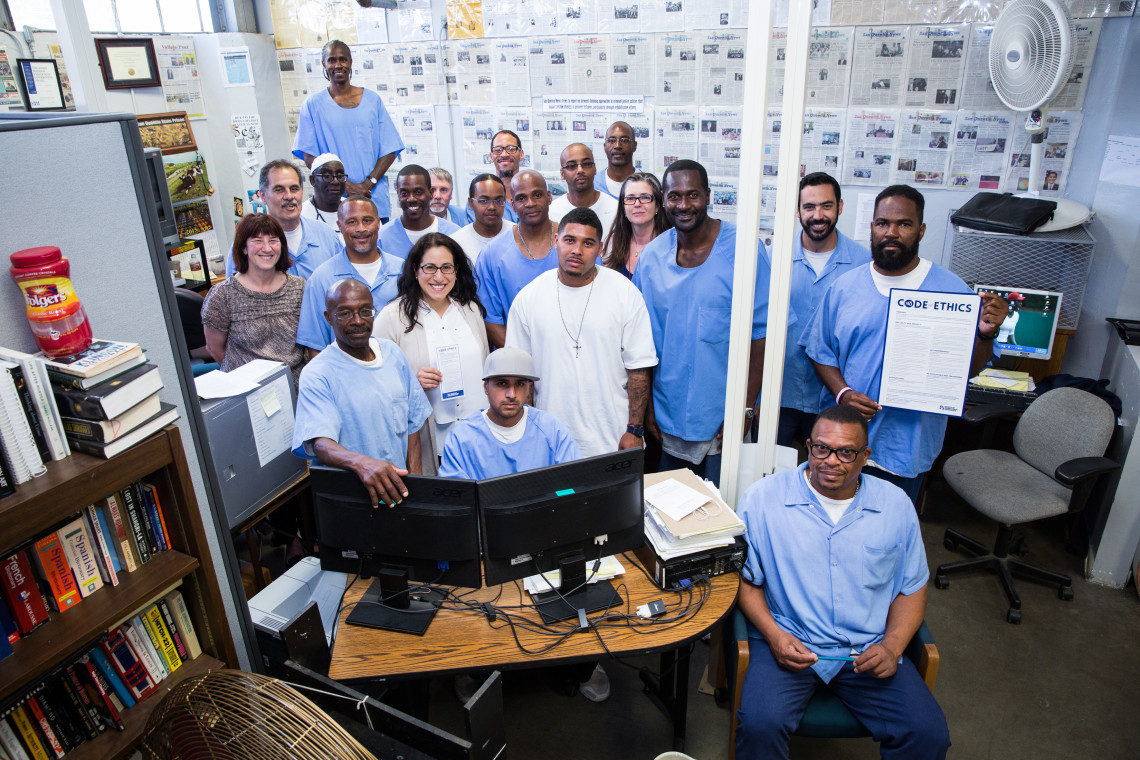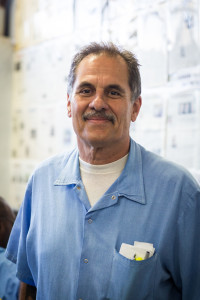 Arnulfo T. Garcia – Executive Editor, San Quentin News; Member of Society of Professional Journalists; SPJ #9996629; CDCR #C14022
Arnulfo T. Garcia – Executive Editor, San Quentin News; Member of Society of Professional Journalists; SPJ #9996629; CDCR #C14022
I am a journalist because I am concerned about the direction of laws that affect prisoners. It is imperative the public understand how important it is we also have a voice. For too long we have ignored the potential we have as inmates to write and report about the world. We allowed our own ignorance to trap us, too ashamed and embarrassed to express what’s in our hearts and too afraid to speak our mind for fear of retaliation.
Today that has changed. The shame is gone. As a journalist I report on stories that have the potential to bring change to lives that matter, examine what is the truth and report the facts that help others understand what is fact from fiction.
We are a voice for those less fortunate. Through our work, we hope to bring positive change to the system of criminal justice in the U.S.
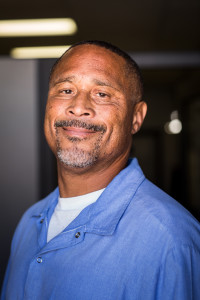 Brian Asey – Executive Director, San Quentin Prison Report; Member of Society of Professional Journalists; incarcerated 17 years; Prison #E29; CDCR #E29487
Brian Asey – Executive Director, San Quentin Prison Report; Member of Society of Professional Journalists; incarcerated 17 years; Prison #E29; CDCR #E29487
Being accepted as a member of the SPJ means a great deal to me because it validates all the hard work I’ve been doing for the past six years. As a journalist inside San Quentin State Prison, I have the opportunity to report on the stories of the men incarcerated inside the prison from the inmate perspective. Unlike reports produced by reporters and journalists who come inside to report to the outside, our reports bring a unique perspective of the real world, voices, lives inside.
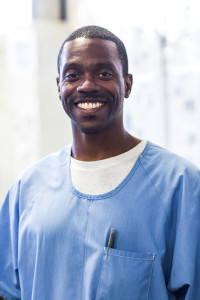
Emile DeWeaver – Movie Reviewer, San Quentin News; Member of Society of Professional Journalists; CDCR #P78987
I am a journalist because I love to write. It’s a powerful experience to convey understanding through written words. I’ve changed my life with my writing. Because of my work, people are able to see through the stereotypes associated with prisoners. I’m blessed with the skill and discipline to effectively inform the world about issues that are important. Many people inside prison haven’t developed that skill, but they still deserve a voice. I’m a journalist because it allows me to be their voice.
Working as a journalists from inside prison is restrictive. It is important because too many people have no idea what’s going on in America’s prisons. They’ve had to rely on censured information issued by prison press departments and the limited access free journalists have inside prisons. Under such conditions, the realities of life in prison become invisible to the public. Prison journalists widen the lens through which people can view prison. That’s important because injustice flourishes in invisible places.
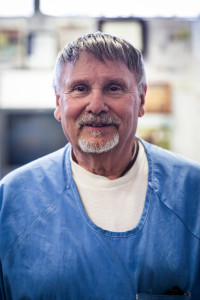
Wesley R. Eisiminger – Staff Writer, San Quentin News; Member of Society of Professional Journalists; CDCR #T04210
I first became interested in becoming a journalists in prison. In my first prison, a maximum security prison, the first thing I was told was to not to believe anything I heard and only half of what I saw. I discovered the place was full of rumors and gossip. It was impossible to know what was really going on, which left us in the dark most of the time.
There were very few jobs. But under the administrative rules established by prison officials we could have an inmate publication or newsletter. I saw this as a good idea. It could be a way to find out what was happening in our facility and share the information with others. I talked to one of the prison captains. He approved some of us to work on a two-page newsletter as a way of bringing attention to what was going on with programs and other things.
When I came to San Quentin, which already had a newspaper, I joined the Journalism Guild within two weeks, and became a staff writer.
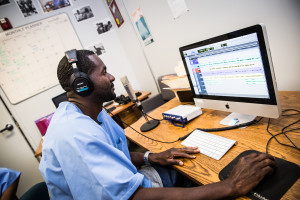
Greg Eskridge – Senior Reporter, San Quentin Prison Report; Member of Society of Professional Journalists; CDCR #K07041
Being a journalist here at San Quentin has been an honor. I have been gifted with an endless number of important stories to produce for both listeners inside and outside the prison. It is a privilege to be the voice of men of San Quentin. Men inside have placed their trust in me to give an accurate account of their lives. With their confidence and trust I take a personal approach to story telling, producing profiles of the men inside San Quentin. I feel truly blessed to call myself a journalist. Becoming a member of The Society of Professional Journalists is one of the greatest accomplishments of my twenty-one years of incarceration.
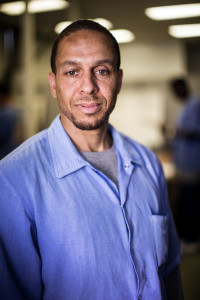 Samuel Hearns – Photographer, San Quentin News; Member of Society of Professional Journalists; #K59442
Samuel Hearns – Photographer, San Quentin News; Member of Society of Professional Journalists; #K59442
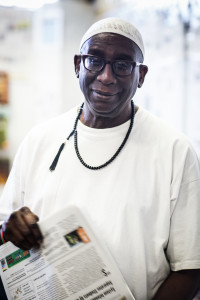 Charles David Henry – Journalist, San Quentin News; Member of Society of Professional Journalists; #F00408
Charles David Henry – Journalist, San Quentin News; Member of Society of Professional Journalists; #F00408
I earned English, Law and Doctorate Degrees before coming to prison and subsequently, became intrigued with the California Death Penalty when I arrived at San Quentin. The majority of my articles highlight capital punishment, the death penalty, Death Row and the issue of whether or not the use of a manufactured drug is cruel and unusual punishment. Since arriving at San Quentin in 2012, I have researched over 250 capital murder cases and have written 75 legal briefs arguing how criminal law processings have violated the constitutional rights of defendants.
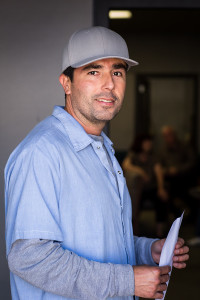
Jorge Herida – Photographer, San Quentin Prison Report; Member of Society of Professional Journalists
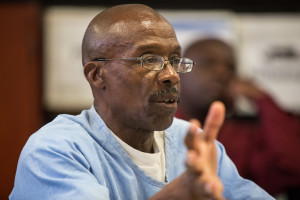 Juan Moreno Haines, Senior Editor, San Quentin News; Member of Society of Professional Journalists; CDCR #K23760
Juan Moreno Haines, Senior Editor, San Quentin News; Member of Society of Professional Journalists; CDCR #K23760
Although San Quentin News is a state-owned newspaper, prison officials give inmate-journalists in the prison wide latitude about the stories we can report and the content we can cover in the newspaper. More importantly, all stories are generated and produced from the stories prisoners want to know more about. These ideas cause us to ask questions from a perspective almost never heard from.
Inmate journalists have a huge responsibility to scrutinize the criminal justice system and its policies when there are entities within the government that are not accustomed to being transparent. Personally, I would rather tell stories about transformation and the resiliency of the human spirit from a subjugated perspective. However, there are forces tenaciously against this concept.
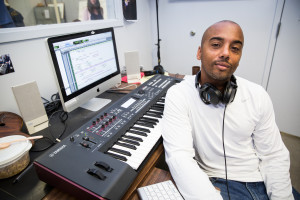 David Jassy – Director of Music Production and Audio Engineering, San Quentin Prison Report; Member of Society of Professional Journalists; incarcerated 7 years; CDCR #AC9202
David Jassy – Director of Music Production and Audio Engineering, San Quentin Prison Report; Member of Society of Professional Journalists; incarcerated 7 years; CDCR #AC9202
Being part of the Society of Professional Journalists provides us with a source of resources and support. It acknowledges the effort put into creating the San Quentin Prison Report.
Chung Kao — Reporter, San Quentin News, #J56314;
The reason I want to work as a journalist for the San Quentin News is to provide accurate, relevant, and timely information on criminal justice policies and affairs to prisoners, government officials and the public. The transformative stories told in the SQ News inspire change in prisoner lifestyle and promote rehabilitation. Information in the SQ News on criminal justice policies and affairs at the state and national levels informs government officials and the public in making better decisions in government and in supporting legislation and social change, all of which leads to better public safety.
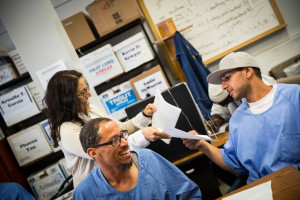 Adnan Khan – Reporter, San Quentin Prison Report; Member of Society of Professional Journalists; incarcerated 13 years; CDCR #F55145
Adnan Khan – Reporter, San Quentin Prison Report; Member of Society of Professional Journalists; incarcerated 13 years; CDCR #F55145
I really enjoy being a journalist in prison because I am able to give accurate and insightful accounts of life inside.
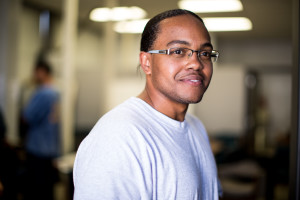
Harold Meeks – Video Editor and Photographer, San Quentin Prison Report; Member, Society of Professional Journalists; CDCR #G44930
It is a blessing for me to work in an environment like this. I enjoy editing videos and photos. This experience is part therapeutic and part rehabilitation. It is an honor to be part of the Society of Professional Journalists.
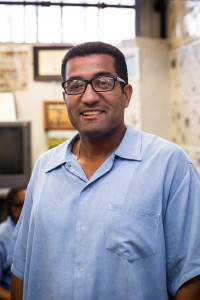
Miguel Quezada – Columnist, San Quentin News, Member of Kid CAT; Member of Society of Professional Journalists; incarcerated 18 years; CDCR #P59278
For much of my young life and early incarceration I felt powerless and voiceless. Much of that derived from my lack of education and access to resources in my community. Journalism has been the education by which I give voice to myself and the issues that impact my community. Journalism has empowered me as a prisoner and given me the ability to be a voice for others who feel powerless and voiceless. Journalism to me is not a profession but a passion for justice, truth, and the fundamental values of democracy, a path that often requires great sacrifice.
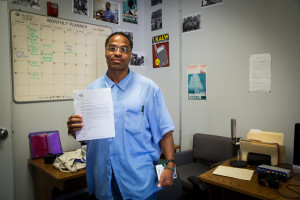 Tommy “Shakur” Ross – Senior Reporter, San Quentin Prison Report; Member of Society of Professional Journalists; CDCR #D83621
Tommy “Shakur” Ross – Senior Reporter, San Quentin Prison Report; Member of Society of Professional Journalists; CDCR #D83621
My name is Tommy Ross, but “Shakur” is who I am. Shakur is an Arabic word. Translated it means thankful, grateful, or appreciative. This year is my 30th year of imprisonment. If anyone would have suggested that I would be a radio reporter three years ago, I would have laughed. But by coming to San Quentin State Prison in 2012, I was afforded an opportunity to become a bonafide journalist.
Today, I laugh for a different reason; and it’s because I am honored and grateful to have the opportunity to give voice to the voiceless community of which I am very much a part. Being a radio journalist has become a part of my identity. I will not take it for granted. Finally, I would like to thank everyone who has helped me in the process of becoming a journalist.
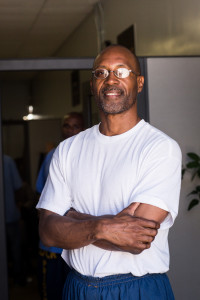
Kevin D. Sawyer – Journalist, San Quentin News; Journalism Guild Chairman and Member of Society of Professional Journalists: #9996646 (Previous SPJ# 449125); CDCR #P22673
It is imperative I write narratives for my generation to outline what is happening in this era; to supplant misconception with truth. Considering the structural elements operating in the U.S. mainstream corporate media and its influence on public deliberation to further insidious social engineering, becoming a journalist had a visceral affect on me. The written word, documentary film, radio stories, and other various forms of the emerging electronic media are chief in providing information to help combat inequality in a time of want for a more egalitarian society.
Journalists provide the requisite information essential for the public to make decisions on how to better meld the social order. Writing as a journalist in a carceral environment is cathartic. Coupled with the fact that I have no direct access to an outside telephone, email, or internet, I am entrenched in a milieu of corruption; a place where chaotic violence, wanton state malfeasance, racism, and disparity bloom.
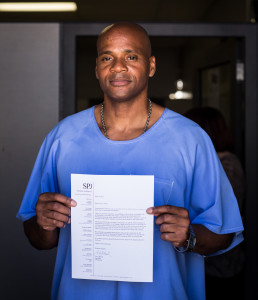
Louis A. Scott – Reporter, San Quentin Prison Report, Journalism Guild Co-Chairman and Member of Society of Professional Journalists; CDCR #P01093
I am currently serving a sentence of 199 years-to-life plus four months. I have been incarcerated for 19 years. During that time, I have been doing many things to better myself. I’m a facilitator for Restorative Justice, S.T.E.P. (Sex trafficking Exploitation Prevention), a student at Patten College, Co-Chairman of the Journalism Guild and our chapter of the Society of Professional Journalists, and work as a journalist for the San Quentin Prison Report. I am proud to be a professional journalist. Obtaining this goal while incarcerated was difficult, but it has been most rewarding. I will continue to work towards bringing you stories that are insightful as well as impactful.
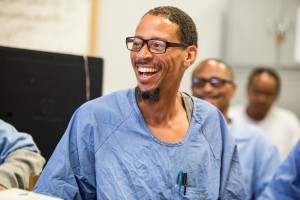
Rahsaan Thomas – Chairman of Journalism Guild, San Quentin News; Member of Society of Professional Journalists; CDCR #T99595
As a man serving a sentence of 55-years-to life, the only thing still free is my voice. I am using it to the best of my vocabulary to change the narrative about prisoners.
The Society of Professional Journalists has looked past my circumstances and accepted me as a professional writer. I am striving to live up to that title so that the last image the world will have of me won’t be a murderer; it will be Rahsaan Thomas, professional journalist and the published author of Uncaged Stories.
Shadeed Wallace-Stepter – Director and Co-Managing Editor of San Quentin Prison Report; Member of Society of Professional Journalists; incarcerated 17 years; CDCR #P72542
Being accepted as a Member of the Society of Professional Journalists lends a sense of legitimacy to the work that we do here at San Quentin. One of the things I strive for as a reporter is quality and sometimes it is hard to overcome the feeling that society at large is more interested in hearing the novelty of reporting from prison. On a personal level this membership lends credibility to my career as a journalist.
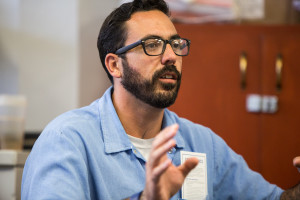 Tommy Winfrey – Arts Editor, San Quentin News; Member of Society of Professional Journalists; CDCR #P02144
Tommy Winfrey – Arts Editor, San Quentin News; Member of Society of Professional Journalists; CDCR #P02144
From my first gulp of air I was screaming. Everyone in the room knew I had arrived on the scene. It is amazing to me that at one minute old, I had a voice. People crowded around to listen and take care of me. Somewhere along the way I lost that voice, and people stopped paying attention.
When I lost my voice, I lost my direction in life and ended up in prison where I found it again. I found my voice in the form of journalism, and for over the past three years, the San Quentin News has been my outlet. Finding my voice has come with responsibility. I now realize that I speak for the men that I am incarcerated with. This has opened me up to truly listen, and to see the people in the world around me. This in turn has allowed me to grow as a person.
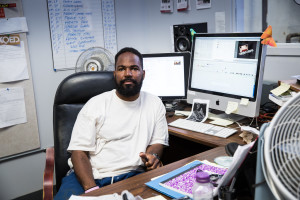
Earlonne Woods – Video Editor, San Quentin Prison Report; Member of Society of Professional Journalists; sentenced to 31 years to life, incarcerated 17 ½ years for attempted 2nd Degree Robbery; CDCR #P3554
It’s important to be acknowledged for the work we do within these walls. To be connected with an organization and have the support of the Society of Professional Journalists is truly contributing to public safety. I feel proud of this accomplishment in my life.

Phoeun You – Graphic Designer, San Quentin News; Member of Society of Professional Journalists; Sentenced to 35 years to life, incarcerated 20 years; 9996635; CDCR #K30232
Being a journalist enriches my life by providing an educational platform to prepare me for life’s obstacles. Journalism also gives me an opportunity to take a stand against injustice. On a greater scale journalism restores humanity.
New SPJ members not pictured are: Ruben Ramirez, #F44163; Theodore Swain, #G16328; Ricky Harris, #P26863; Richard Richardson, #H29617; Julian Glenn Padgett, #K45050; Curtis Carroll, #P75118; and Rudy Moralez.
![]()


